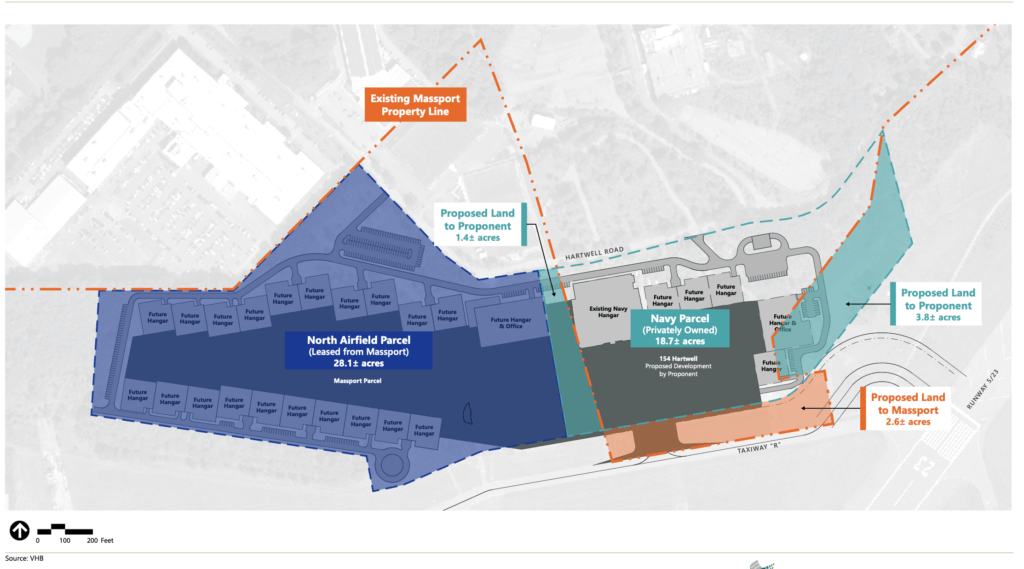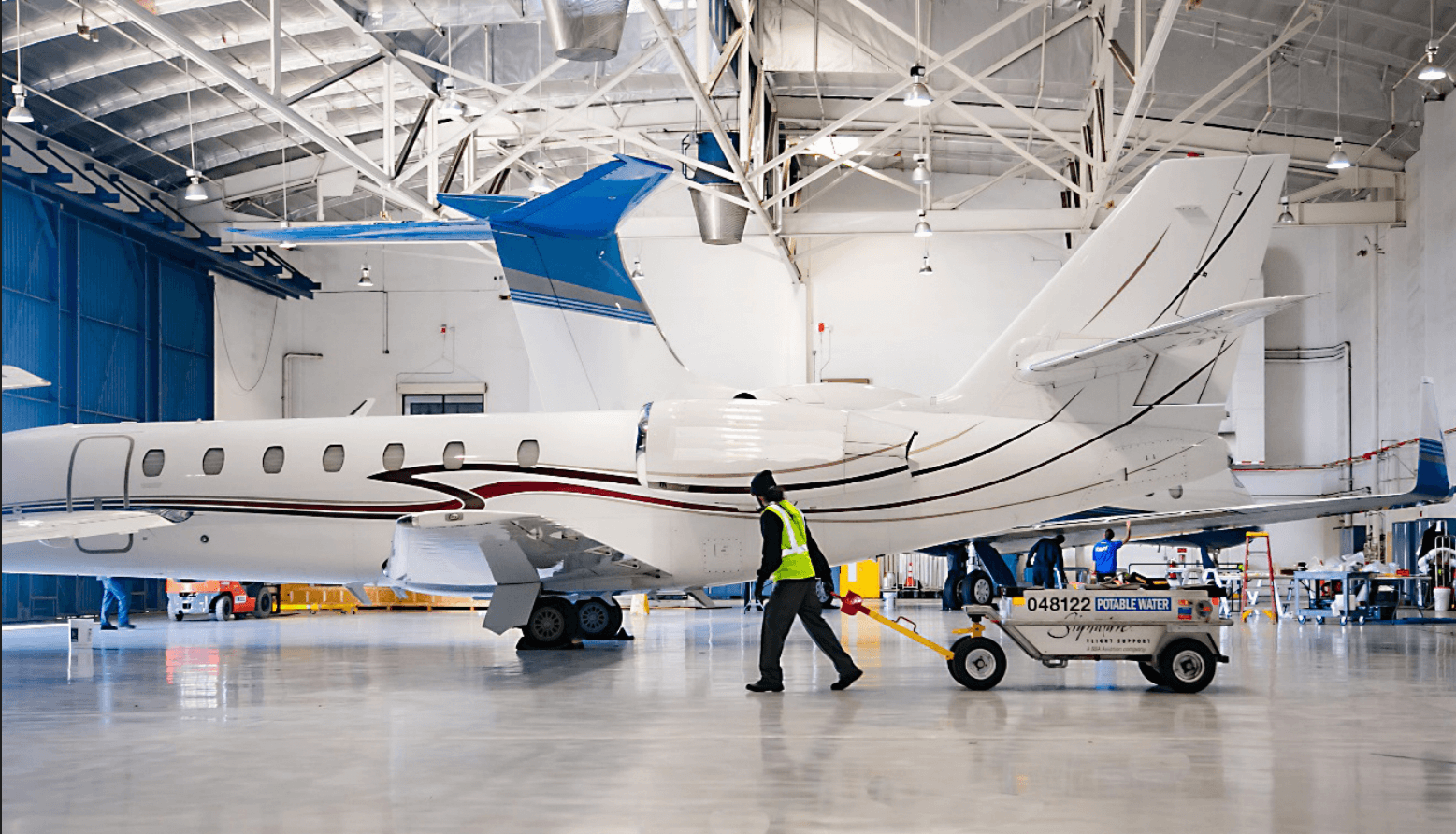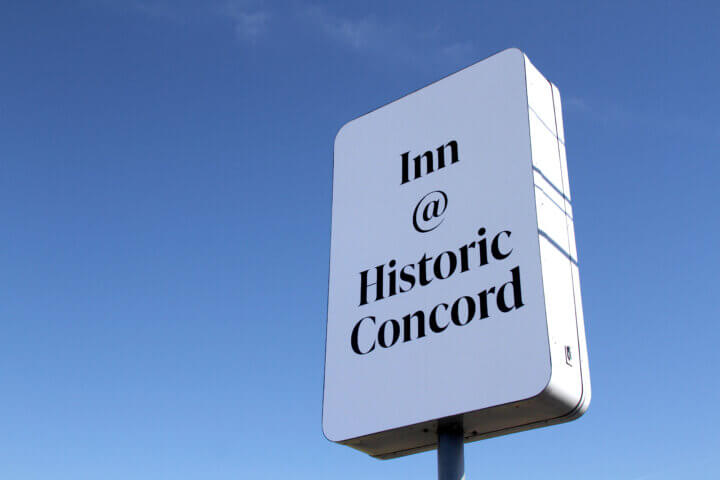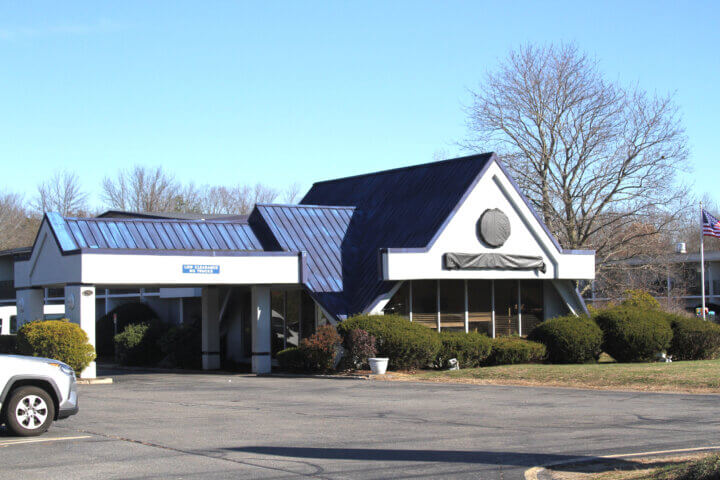State Sen. Mike Barrett and state Rep. Simon Cataldo are among 34 officials who are calling on Massport to minimize the environmental impact of 27 hangers proposed for Hanscom Field.
Included in the suggestions: electric planes.
“The new development at Hanscom is intended for the exclusive use of super emitters,” reads the letter sent to Rebecca Tepper, Secretary Executive Office of Energy and Environmental Affairs and Lisa Wieland, Chief Executive Officer of the Massachusetts Port Authority. “In light of the climate challenges we face, this is profoundly disturbing. If and when these 27 hangars fill up with private jets, any gestures the developers make to green their buildings — their ground facilities— will be almost meaningless, the equivalent of paying a slap-on-the-wrist fine for the right to keep polluting.
“The same math confronts Massport and its high-profile plan to go net zero by 2031,” it adds. “ If the North Airfield project goes forward as the developers envision, we fear Massport’s sustainability efforts elsewhere will net out to very little in the way of reduced emissions, and possibly to nothing at all. Pollution attributable to traffic at the new Hanscom hangars threatens to cancel out all the gains.”
Over the years, Hanscom Field has drawn the attention of local residents concerned with noise and pollution. The possibility of a major expansion has the community concerned.
The Mass. Environmental Agency, MEPA, is reviewing the proposal for the North Airfield Development which calls to expand the ground service area for the field to include 27 hangars, more impervious surface and more planes stored on-site.
Noise is an ongoing concern. Massport’s noise abatement regulations date back to 1980, limiting the time for certain operations and charging additional fees for others that take place during the overnight hours. The office encourages pilots to use quiet flying techniques, according to the Massport website.
With more hangar space, there will be fewer flights in and out of Hanscom, the proposal maintains. Empty planes will not need to be stored off-site.
Military operations, which generate between 10 percent to 20 percent of the noise are not included in the noise regulation regulations.
The noise impacts have changed over the years. In 2009, flights over Minute Man National Park were reduced 20 percent.
In 2020, almost half of the noise complaints came from Bedford and Concord, according to a pie graph released by Massport.
The proposal currently being reviewed by MEPA lists enhanced electrical infrastructure for vehicles and solar, the use of sustainable aviation fuels and support for electric vehicles.

“To cite one fossil fuel-free alternative we favor, an electric plane developed and successfully tested this past September by Eviation carries up to 9 passengers for up to 250 miles,” the letter reads. “Cape Air, a Massachusetts-based commercial operator of regional jet service throughout the Northeastern United States, believes Eviation’s plane can ‘easily cover 80 percent of our flight operations.’”
Cape Air and Global Crossing Airlines, both US-based regional airlines, have placed orders for 75 and 50 Alice aircraft respectively, the letter notes.
“Working with the developers to reimagine the future of private jet travel at Hanscom, EEA and Massport can help usher in the next wave of innovation in aviation,” the letter states. “In so doing, they and we can serve the interests of all the communities near Massport’s various airfields. We don’t propose to move private jet traffic elsewhere.
“We know it will continue to be located at Hanscom. But we urge you, in the strongest possible terms, to ensure that Massachusetts does not enable super emitters. Make travel by private jet innovative. Make it climate compatible. Make it fossil fuel-free.”
Superfund site
The safety of using the field, a Superfund site, is also in question.
The Air Force began clean-up operations in the early 1980s. The Environmental Protection Agency put the airfield and its surroundings on the National Priority List in 1994. The EPA has overseen the Air Force’s cleanup of the 22 identified sites since 2009, according to the EPA website.
Six sites have on-going remedial actions. Subsequent testing found the presence of PFAS, Per- and Polyfluorinated Substances, in the groundwater. As a result, the Air Force suspended its remediation system and began an investigation in 2022.
The EPA determined that the Air Force must complete its investigation and present treatment options by 2025.
The groundwater is not used for drinking water and is monitored.
What is Hanscom?
Developed in the years before the United States entered World War II, Hanscom Air Force Base was initially used by fighter squadrons for training. It grew further during the 1950s, home to testing and evaluation for air defense systems and other electronic systems.
During the 1970s, the Air Force terminated its lease of the airfield and developed its own acreage as a separate Air Force base. The general operation and maintenance of the larger, private field is the responsibility of Massport.
Now a regional facility, Hanscom Field is used by private pilots, schools and other services including private jets. The military operations continue at the Hanscom Air Force Base.






